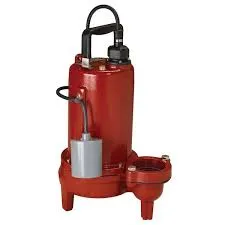irish
- Afrikaans
- Albanian
- Amharic
- Arabic
- Armenian
- Azerbaijani
- Basque
- Belarusian
- Bengali
- Bosnian
- Bulgarian
- Catalan
- Cebuano
- Corsican
- Croatian
- Czech
- Danish
- Dutch
- English
- Esperanto
- Estonian
- Finnish
- French
- Frisian
- Galician
- Georgian
- German
- Greek
- Gujarati
- Haitian Creole
- hausa
- hawaiian
- Hebrew
- Hindi
- Miao
- Hungarian
- Icelandic
- igbo
- Indonesian
- irish
- Italian
- Japanese
- Javanese
- Kannada
- kazakh
- Khmer
- Rwandese
- Korean
- Kurdish
- Kyrgyz
- Lao
- Latin
- Latvian
- Lithuanian
- Luxembourgish
- Macedonian
- Malgashi
- Malay
- Malayalam
- Maltese
- Maori
- Marathi
- Mongolian
- Myanmar
- Nepali
- Norwegian
- Norwegian
- Occitan
- Pashto
- Persian
- Polish
- Portuguese
- Punjabi
- Romanian
- Russian
- Samoan
- Scottish Gaelic
- Serbian
- Sesotho
- Shona
- Sindhi
- Sinhala
- Slovak
- Slovenian
- Somali
- Spanish
- Sundanese
- Swahili
- Swedish
- Tagalog
- Tajik
- Tamil
- Tatar
- Telugu
- Thai
- Turkish
- Turkmen
- Ukrainian
- Urdu
- Uighur
- Uzbek
- Vietnamese
- Welsh
- Bantu
- Yiddish
- Yoruba
- Zulu
Telephone: +86 13120555503
Email: frank@cypump.com
Oct . 18, 2024 16:43 Back to list
commercial submersible pump
The Role and Importance of Commercial Submersible Pumps
In the world of industrial and commercial operations, the importance of efficient fluid management cannot be overstated. Among the critical equipment used for this purpose is the commercial submersible pump. Designed to be submerged in the fluid it is intended to pump, this type of pump plays a vital role in various applications ranging from agricultural irrigation to sewage handling and industrial dewatering.
Submersible pumps are engineered to operate underwater, making them ideal for situations where gravity could be a hindrance. They function by employing a sealed motor that drives a pump impeller. This design not only encourages efficient pumping but also minimizes the risk of mechanical failure due to moisture exposure. Commercial submersible pumps are typically more durable and robust than their non-submersible counterparts, capable of handling significant volumes of fluids, including clear water, sewage, and even abrasive liquids with suspended solids.
One of the primary advantages of commercial submersible pumps is their efficiency. They can pump fluids from substantial depths, which is critical in applications such as mining, where pumping water from deep shafts is necessary. Additionally, because they are located underwater, submersible pumps are usually quieter than surface pumps, making them ideal for use in noise-sensitive areas.
In agriculture, commercial submersible pumps are indispensable for irrigation. They enable farmers to extract groundwater efficiently, thus facilitating crop production in areas with limited rainwater. By ensuring a steady supply of water, these pumps significantly enhance agricultural output and productivity.
commercial submersible pump

In the construction and environmental management sectors, commercial submersible pumps are vital for dewatering applications. Whether it involves removing excess rainwater from construction sites or draining flooded areas, these pumps provide the necessary power and reliability. Their ability to operate in challenging conditions allows projects to progress smoothly, preventing delays and additional costs.
Furthermore, commercial submersible pumps are instrumental in wastewater management systems. Municipalities rely on these pumps to transport sewage from residential areas to treatment facilities. With the increasing emphasis on sustainable practices, advanced pumping technologies have been introduced to improve efficiency and reduce energy consumption during wastewater treatment processes.
However, selecting the right submersible pump involves consideration of several factors, including the type of fluid being pumped, the depth of the water source, and the required flow rate. Commercial buyers must conduct thorough assessments to ensure they choose pumps that meet their specific application needs while also considering energy efficiency and maintenance requirements.
In conclusion, commercial submersible pumps are essential tools across various industries, serving critical functions from irrigation and dewatering to sewage management. Their efficiency, durability, and versatility make them invaluable assets in enhancing operational productivity and ensuring the sustainability of water resources. As technology continues to advance, the role of these pumps will only become more significant in tackling the fluid management challenges of tomorrow.
-
Custom Drilling Mud and Slurry Pump Supplier - High Efficiency, Tailored Solutions
NewsJun.10,2025
-
Supply Vertical Submersible Sewage Pump High-Efficiency WQ/QW Pumps Supplier
NewsJun.10,2025
-
Premium Sewage Ejection System & Pumps Efficient Waste Removal
NewsJun.09,2025
-
Premium Wholesale Slurry Pump Impellers Durable & Efficient Slurry Handling
NewsJun.09,2025
-
Top Sewage Pump Companies Durable Industrial Solutions for Efficiency
NewsJun.09,2025
-
Heavy Duty Slurry Pumps - OEM High Performance & Bulk Wholesale
NewsJun.09,2025










